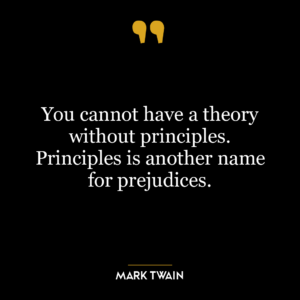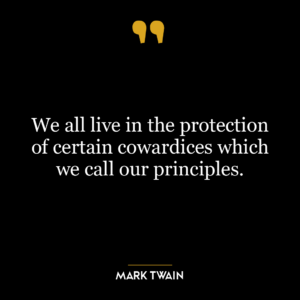This quote speaks to the idea that honesty, even when it is harsh or critical, is easier to accept than insincere or backhanded compliments. The term “morganatic” refers to a type of marriage where one partner is of lower social rank and cannot claim the other’s title or privileges. So, a morganatic compliment would be one that, on the surface, seems positive, but carries an undertone of condescension or insincerity.
Twain suggests that it’s more bearable to hear a dozen direct criticisms, as they are straightforward and can be used constructively to improve oneself. However, a morganatic compliment is more damaging because it subtly undermines one’s worth or achievements, often leaving the recipient confused or hurt because they are not sure whether they have been praised or insulted.
In today’s world, this idea is particularly relevant in the realm of personal development and interpersonal communication. It encourages us to be sincere and direct in our feedback to others, rather than giving false praise or veiled criticisms. It also reminds us to be discerning when receiving compliments, and to consider the intentions and sincerity behind the words.
In personal development, it is more beneficial to receive and appreciate honest criticism as it offers a clear direction for improvement. Conversely, insincere compliments can lead to complacency and hinder growth. Therefore, it is important to surround ourselves with people who are honest and constructive in their feedback, rather than those who only offer empty praise.






